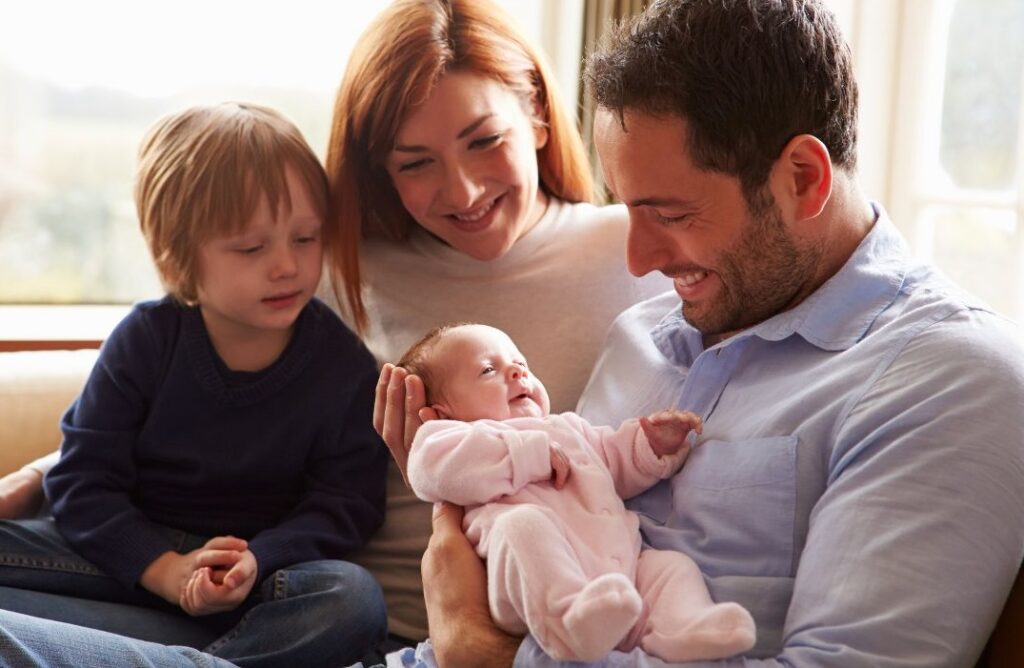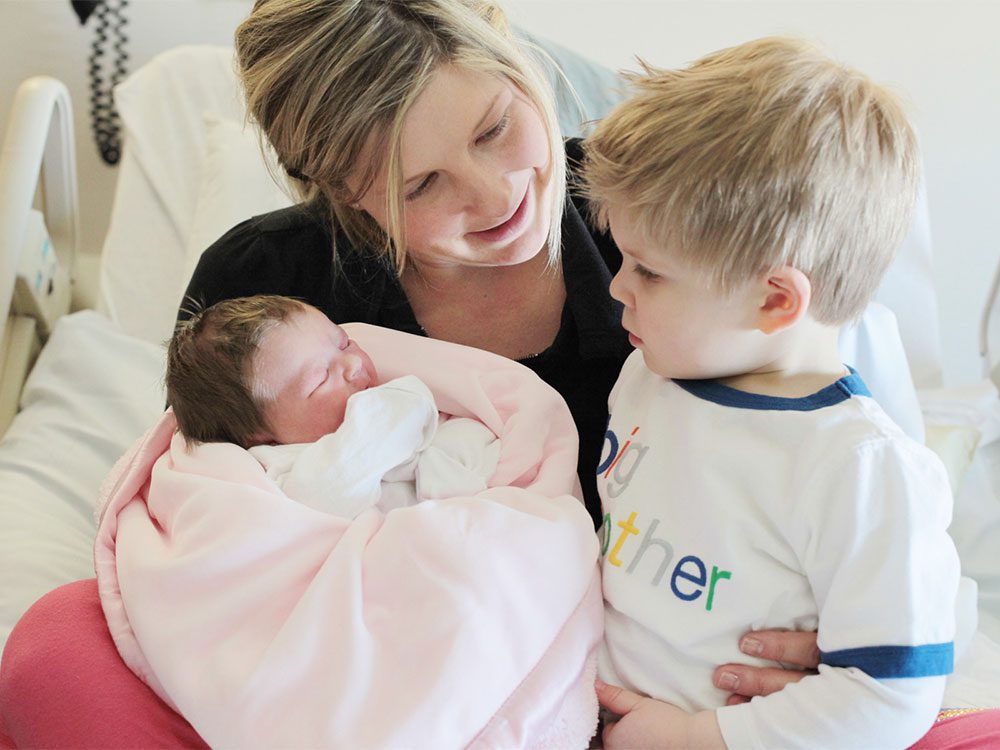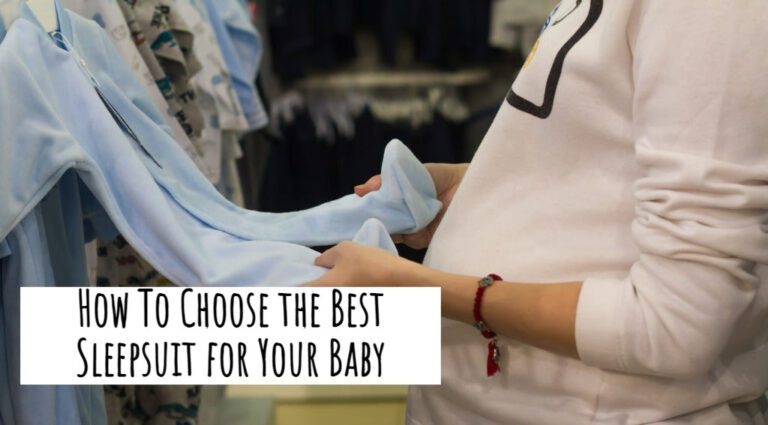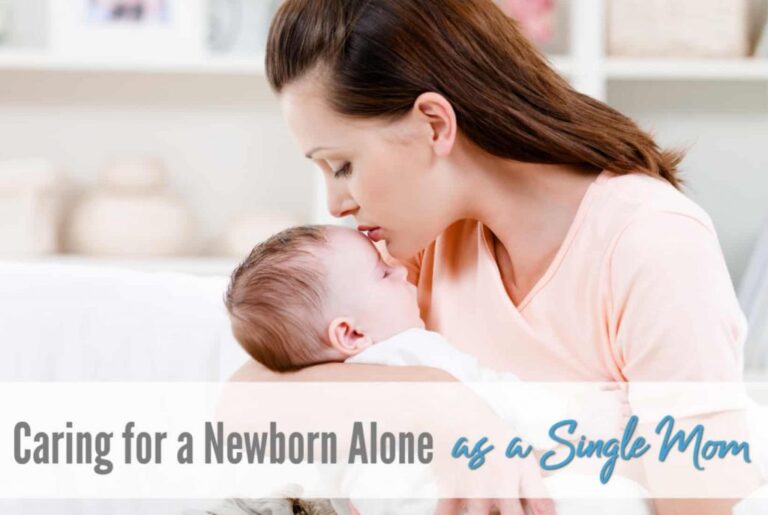How to Tell Toddler About New Baby: A Guide to Sibling Introductions
To tell a toddler about a new baby, let them feel the baby kicking, invite them to sing or pat the baby, and consider bringing them to a prenatal visit to hear the heartbeat. Keep the conversation light and positive.

Credit: www.guideandgrow.com
1. Choosing The Right Time And Approach
When it comes to telling your toddler about the impending arrival of a new baby, choosing the right time and approach is crucial. By understanding your toddler’s developmental stage, picking an appropriate moment for the conversation, and creating a comfortable and relaxed environment, you can ensure that your toddler is more accepting and excited about the new addition to the family.
Understanding Your Toddler’s Developmental Stage
Before telling your toddler about the new baby, it’s important to consider their developmental stage. Toddlers are naturally curious and may have a limited understanding of the concept of pregnancy. Use simple and age-appropriate language to explain that there is a baby growing inside your tummy. You can say something like, “You’re going to have a baby brother or sister. He or she is here, growing inside my tummy.” This straightforward explanation will help your toddler grasp the idea.
Picking An Appropriate Moment For The Conversation
Choosing the right moment to talk to your toddler about the new baby can make a big difference in their response. Find a time when your toddler is well-rested and in a calm mood. Avoid discussing the topic when they are tired, hungry, or in the middle of a tantrum. By selecting a peaceful moment, you can capture their attention and create a positive environment for the conversation.
Creating A Comfortable And Relaxed Environment
When discussing the new baby with your toddler, it’s essential to create a comfortable and relaxed environment. Sit down with your child in a familiar and quiet space, free from distractions. This will make it easier for them to focus on what you are saying and ask any questions they may have. Consider sitting on the floor or on a cozy chair together, making it a cozy and intimate conversation.
Invite your toddler to be a part of the pregnancy journey by involving them in simple activities like feeling the baby kick, suggesting names, or even accompanying you to a prenatal visit to hear the baby’s heartbeat. This inclusion can help your toddler feel connected and excited about the upcoming arrival.
Remember to keep the conversation about the new baby light and positive. Emphasize how much love you have for both your toddler and the baby, and assure them that there will be plenty of love to go around. Acknowledge any feelings or questions your toddler may have and encourage open and honest communication.
By choosing the right time and approach, understanding your toddler’s developmental stage, and creating a comfortable and relaxed environment, you can successfully navigate the conversation about the new baby with your toddler. This will help them feel more involved and prepared for the exciting changes that lie ahead.
2. Preparing For The Conversation
When it comes to telling your toddler about the new baby, it’s important to take some time to prepare for the conversation. By gathering resources, anticipating questions and concerns, and identifying key points to discuss, you can ensure that the conversation goes smoothly and helps your toddler feel excited and prepared for the arrival of their new sibling.
Gathering Resources And Age-appropriate Books
Gathering resources and age-appropriate books can be a great way to introduce the concept of a new baby to your toddler. Look for books that are specifically designed to help toddlers understand the arrival of a new sibling. Some popular options include:
- “I’m Going To Be A Big Sister”
- “Peppa Pig: Peppa and the New Baby”
- “Archie the Bear Becomes a Big Brother”
- “It’s Big Brother Time!”
Reading these books together can help your toddler visualize what it will be like to have a new baby in the family and can also provide an opportunity for discussion and questions.
Anticipating Questions And Concerns
Anticipating the questions and concerns that your toddler might have can help you better prepare for the conversation. Some common questions and concerns that toddlers often have when they learn about a new baby include:
- “Will the baby take my toys?”
- “Will the baby sleep in my room?”
- “Will I still get to spend time with mommy and daddy?”
Try to think about how you will address these questions and concerns in a simple and age-appropriate way. Assure your toddler that their toys will still be theirs and that the baby will have their own things. Explain that while the baby will be sleeping in a crib, your toddler will still have their own special space in their room. And reassure them that even though there will be a new baby, mommy and daddy will still make time for special moments with them.
Identifying Key Points To Discuss With Your Toddler
Identifying key points to discuss with your toddler can help you stay focused and ensure that you cover all the important aspects of the conversation. Some key points to consider discussing include:
- Explaining that mommy’s tummy is growing because there is a baby growing inside
- Telling your toddler how loved they are and assuring them of your continued love and attention
- Sharing that they will have an important role as the big brother or sister
- Discussing some of the things they can do to help take care of the baby
By going over these key points, you can help your toddler feel involved and excited about their new role as an older sibling.
3. Engaging And Involving Your Toddler
Engage and involve your toddler in the process of welcoming a new baby by letting them feel the baby kicking, inviting them to sing or pat the baby, and even bringing them to a prenatal visit to hear the baby’s heartbeat.
Keep the conversation about the new baby positive and light.
Letting Your Toddler Feel The Baby’s Movements
Once your baby’s movements become pronounced enough, it’s a great idea to let your toddler feel them. This can help them establish a physical connection with their soon-to-be sibling and make the whole concept more tangible for them. You can invite your child to sing to or pat your belly, encouraging them to interact with the baby.
Including Your Toddler In Prenatal Appointments
Bringing your older toddler to a short prenatal appointment can be a wonderful way to involve them in the process of welcoming the new baby. Consider taking them along to hear the baby’s heartbeat, which can be a magical experience for both of you. This will also help your toddler understand that there is indeed a baby growing inside your belly. It’s important to keep the conversation light and positive, so your child associates the new baby with joy and excitement.
Encouraging Your Toddler To Express Their Thoughts And Feelings
It is crucial to create an environment where your toddler feels comfortable expressing their thoughts and feelings about the new baby. Encourage them to talk about their excitement, concerns, and any questions they may have. By validating their emotions and listening attentively, you will make your child feel valued and included in this significant life transition.
- Give your toddler special jobs related to the baby’s arrival, such as choosing a blanket or helping decorate the nursery. This will make them feel involved and important.
- Ask for their advice on baby-related matters, such as what color onesies to buy or which toys the baby might like. This will make them feel respected and part of the decision-making process.
- Encourage your toddler to watch and observe the baby with you. This can foster a sense of curiosity and connection between siblings from an early stage.
- Read stories about being a big brother or sister. This will not only familiarize your child with the concept but also help them embrace their new role.
- Let your toddler share the story of their impending sibling’s arrival with others, such as grandparents or friends. This will boost their confidence and excitement about the baby.
- Acknowledge your toddler’s feelings throughout the process and reassure them that their emotions are valid and understandable. This will help them feel secure and understood.
- Make an effort to spend some one-on-one time with your toddler, even after the baby is born. This will reinforce their sense of importance and reassure them that they are still loved and cherished.
- Lastly, give your toddler the space to do their own thing and adjust to the changes at their own pace. Respecting their individuality and offering support when needed will foster a positive transition to siblinghood.
By implementing these strategies, you can engage and involve your toddler in the journey of welcoming a new baby into the family. This will help them feel valued, secure, and excited about their expanding role as a big brother or sister.
4. Making The Announcement
When it comes to telling your toddler about the arrival of a new baby, making the announcement in a positive and gentle manner is key. Using simple and positive language will help your little one understand and embrace the idea of having a new sibling.
Using Simple And Positive Language To Explain The Arrival Of A New Sibling
Addressing your toddler in a language that they can easily comprehend is essential. Keep your words simple and straightforward, and use phrases like:
- “You’re going to have a baby brother or sister.”
- “He or she is here, growing inside my tummy.”
Emphasize the love and affection you have for your toddler by saying:
- “You’re so special to us, and we have lots and lots of extra love to share, plenty for you and the new baby!”
Addressing Your Toddler’s Potential Worries And Anxieties
Your toddler may have worries or anxieties about the new baby’s arrival. Take the time to acknowledge and address their feelings. Ask open-ended questions and actively listen to their responses. This will help them feel heard and understood.
Assure your toddler that their feelings are valid and normal, and that it’s okay to feel a mix of emotions. Let them know that it’s natural to feel excited, scared, or even a little jealous at times. Reassure them that you will always be there for them, no matter what.
Emphasizing The Special Bond And Love That Siblings Share
Highlight the positive aspects of having a sibling by emphasizing the special bond and love that siblings share. Talk about how they will have a lifelong friend and playmate. Explain that having a sibling means having someone to share adventures, secrets, and memories with.
Read books about siblings and their special relationships. Use these stories as an opportunity to discuss the joys of having a brother or sister. This will help your toddler develop a positive attitude towards the new arrival.
By using simple and positive language, addressing your toddler’s worries, and emphasizing the special bond that siblings share, you can make the announcement of a new baby a joyful and exciting experience for your little one.
5. Supporting Your Toddler’s Transition
Introduce your toddler to the idea of a new baby by involving them in the process. Let them feel the baby kick, sing or pat the baby, and even accompany you to a prenatal visit. Keep the conversation light and positive to help them adjust to the idea.
Designating Special Roles And Responsibilities For Your Toddler
One effective way to help your toddler adjust to the arrival of a new baby is by designating special roles and responsibilities for them within the family. This can help them feel included and valued, fostering a sense of importance and pride. Assigning tasks such as fetching diapers, helping with simple baby care tasks, or being the official “big sibling helper” can give your toddler a sense of purpose and involvement. This not only eases their transition but also encourages them to develop a sense of responsibility and empathy.
Reading Books And Stories About Becoming A Sibling
Another helpful strategy is to introduce your toddler to books and stories that revolve around the theme of becoming a sibling. These books can serve as a visual and engaging tool to help them understand and process the upcoming changes in their family. Reading together allows you to create a bonding experience while also addressing their questions and concerns. Choose age-appropriate books that showcase the arrival of a new baby, sibling relationships, and the emotions associated with these experiences. This can help your toddler feel more prepared and excited about the new addition to the family.
Setting Aside Individual Quality Time With Your Toddler
Amidst the excitement of welcoming a new baby, it’s crucial to ensure you set aside individual quality time with your toddler. This focused attention helps reassure them that their importance hasn’t diminished and helps them cope with any feelings of jealousy or insecurity that may arise. Plan special activities together, such as going on outings, having playtime or bedtime routines, or simply engaging in activities they enjoy. This dedicated one-on-one time helps strengthen the parent-child bond, promotes positive behavior, and provides a sense of security for your toddler during this major life transition.
By implementing these effective strategies, you can support your toddler’s transition as they prepare to become a sibling. It’s important to remember that each child may have their own unique way of adjusting and expressing their emotions. Patience, understanding, and consistent support play a key role in helping your toddler embrace their new role as a big sibling.
Frequently Asked Questions Of How To Tell Toddler About New Baby
How Do I Teach My 2 Year Old About A New Baby?
To teach your 2-year-old about a new baby, let them feel the baby kicking and invite them to sing or pat the baby. Keep conversations light and positive. Consider bringing your toddler to a prenatal visit to hear the baby’s heartbeat.
Read stories about the new role of being a sibling and spend quality time with your child individually.
When Should I Tell My 2 Year Old About A New Baby?
It is best to tell your 2-year-old about a new baby during the middle of the second trimester. Keep the conversation light and positive, and consider using a landmark event or holiday to help them understand when the baby will arrive.
Allow your child to feel the baby kicking and involve them in prenatal visits. Giving your child special jobs and reading stories about their new role can also help them accept the new sibling.
How Do I Deal With My 2 Year Old With A New Baby?
To deal with your 2-year-old when you have a new baby, involve them in the experience. Let them feel the baby kicking, sing to or pat the baby, and consider taking them to a prenatal visit. Keep the conversation about the new baby positive and light.
Give your child special tasks and involve them in caring for the baby. Read stories about their new role and spend quality time with them alone. Acknowledge their feelings and let them adjust at their own pace.
How Long Does It Take For Toddler To Adjust To New Baby?
It typically takes a toddler a few weeks to a couple of months to adjust to a new baby.
Conclusion
To ensure a smooth transition for your toddler, it is important to communicate about the new baby in a positive and engaging way. Encourage your child to feel the baby’s movements, invite them to sing or pat the baby, and even bring them to a prenatal visit to hear the baby’s heartbeat.
Keep the conversation light and maintain a positive tone. Additionally, make sure to give your child special jobs and involve them in the baby’s care to foster acceptance and excitement. By following these tips, you can help your toddler embrace the arrival of their new sibling with joy and enthusiasm.








